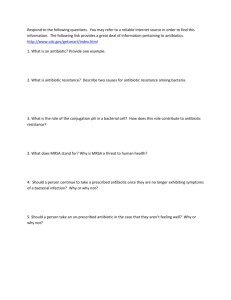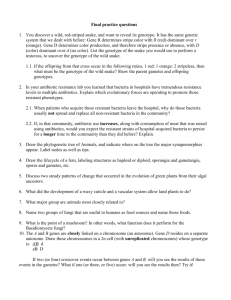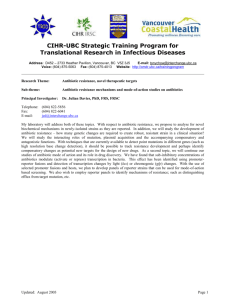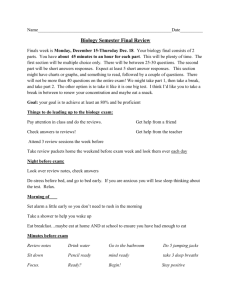Friday, November 7 — 3:00 PM California State University, Fresno
advertisement
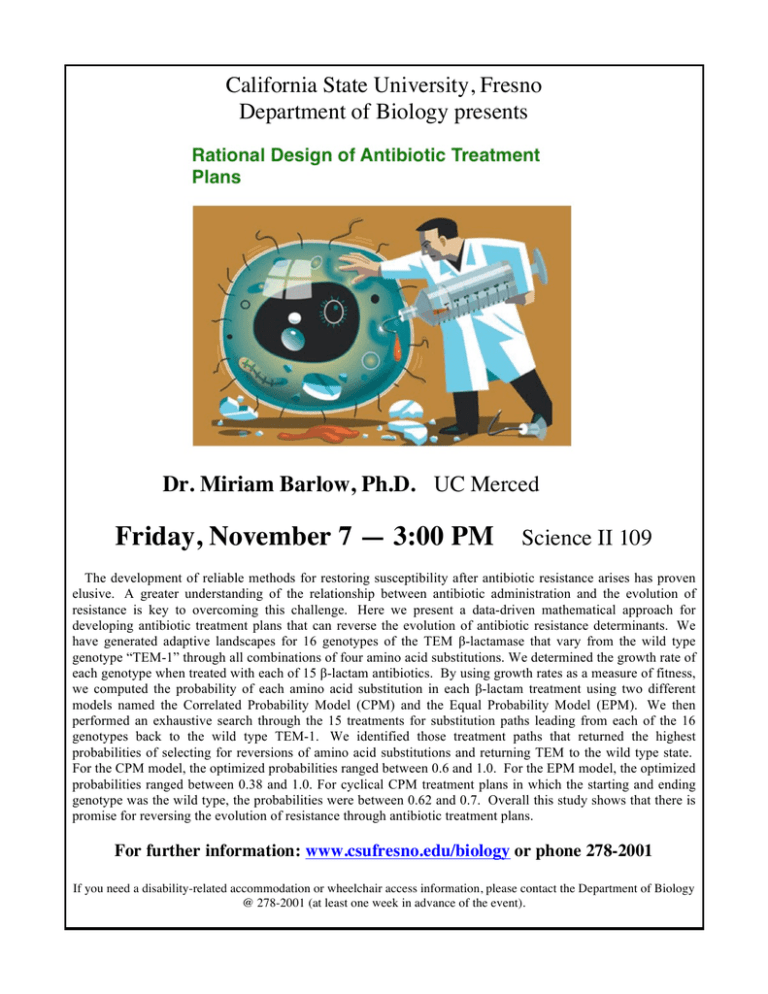
California State University, Fresno Department of Biology presents Dr. Miriam Barlow, Ph.D. UC Merced Friday, November 7 — 3:00 PM Science II 109 The development of reliable methods for restoring susceptibility after antibiotic resistance arises has proven elusive. A greater understanding of the relationship between antibiotic administration and the evolution of resistance is key to overcoming this challenge. Here we present a data-driven mathematical approach for developing antibiotic treatment plans that can reverse the evolution of antibiotic resistance determinants. We have generated adaptive landscapes for 16 genotypes of the TEM β-lactamase that vary from the wild type genotype “TEM-1” through all combinations of four amino acid substitutions. We determined the growth rate of each genotype when treated with each of 15 β-lactam antibiotics. By using growth rates as a measure of fitness, we computed the probability of each amino acid substitution in each β-lactam treatment using two different models named the Correlated Probability Model (CPM) and the Equal Probability Model (EPM). We then performed an exhaustive search through the 15 treatments for substitution paths leading from each of the 16 genotypes back to the wild type TEM-1. We identified those treatment paths that returned the highest probabilities of selecting for reversions of amino acid substitutions and returning TEM to the wild type state. For the CPM model, the optimized probabilities ranged between 0.6 and 1.0. For the EPM model, the optimized probabilities ranged between 0.38 and 1.0. For cyclical CPM treatment plans in which the starting and ending genotype was the wild type, the probabilities were between 0.62 and 0.7. Overall this study shows that there is promise for reversing the evolution of resistance through antibiotic treatment plans. For further information: www.csufresno.edu/biology or phone 278-2001 If you need a disability-related accommodation or wheelchair access information, please contact the Department of Biology @ 278-2001 (at least one week in advance of the event).
